
Coneheads is a 1993 American science-fiction comedy film from Paramount Pictures, produced by Lorne Michaels, directed by Steve Barron, and starring Dan Aykroyd, Jane Curtin and Michelle Burke. The film is based on the NBC Saturday Night Live comedy sketches about aliens stranded on Earth, who have Anglicized their Remulakian surname to "Conehead". Michelle Burke took over the role played by Laraine Newman on SNL. The film also features roles and cameos by actors and comedians from SNL and other television series of the time.

Molly Lamont was a South African-British film actress.

The Invisible Woman is a 1940 American science fiction comedy film directed by A. Edward Sutherland. It is the third film in Universal Pictures' The Invisible Man film series, following The Invisible Man and The Invisible Man Returns, the latter which was released earlier in the year. It was more of a screwball comedy than the others in the series. Universal released The Invisible Woman on December 27, 1940.
Charles Richard Dierkop was an American character actor. He is most recognized for his supporting roles in the films Butch Cassidy and the Sundance Kid (1969) and The Sting (1973) and the television series Police Woman (1974-1978).

Kid Millions is a 1934 American musical film directed by Roy Del Ruth, produced by Samuel Goldwyn Productions, and starring Eddie Cantor. Its elaborate "Ice Cream Fantasy Finale" production number was filmed in three-strip Technicolor, one of the earliest uses of that process in a feature-length film.

'Neath Brooklyn Bridge is a 1942 film released by Monogram Pictures. It is the eleventh installment in the East Side Kids series and one of the more dramatic films of the series, released at a time when they were making lighter, more humorous fare. The film is now in public domain and can be downloaded legally from numerous web sites.

Belle of the Nineties is a 1934 American Western film directed by Leo McCarey and released by Paramount Pictures. Mae West's fourth motion picture, it was based on her original story It Ain't No Sin, which was also to be the film's title until censors objected. Johnny Mack Brown, Duke Ellington, and Katherine DeMille are also in the cast. The film is noted for being the premiere performance of the jazz standard "My Old Flame", performed by West with the Duke Ellington Orchestra.
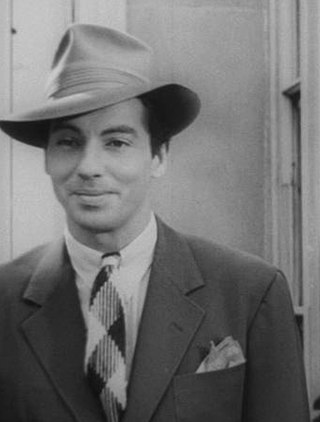
Captain Carleton Scott Young was an American character actor who was known for his deep voice.

Frank Campanella was an American actor. He appeared in numerous television series, as well as a few films and Broadway productions.

Night World is a 1932 American pre-Code drama film featuring Lew Ayres, Mae Clarke, and Boris Karloff. The supporting cast includes George Raft and Hedda Hopper.
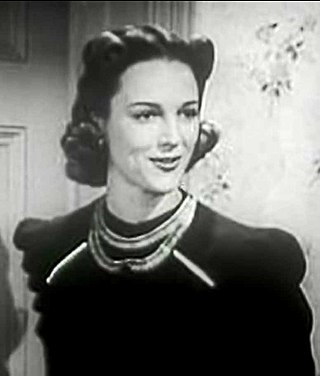
Luana Walters was an American motion picture actress from Los Angeles, California.

Home from the Hill is a 1960 American melodrama film starring Robert Mitchum, Eleanor Parker, George Peppard, George Hamilton, Everett Sloane and Luana Patten. Directed in CinemaScope by Vincente Minnelli and filmed in Metrocolor, it was produced by Edward Grainger, and distributed by MGM. The screenplay was adapted from the 1958 novel “Home from the Hill” by William Humphrey. The film was entered into the 1960 Cannes Film Festival. The title is from the last line of Robert Louis Stevenson's short poem "Requiem".

Kane Richmond was an American film actor of the 1930s and 1940s, mostly appearing in cliffhangers and serials. He is best known today for his portrayal of the character Lamont Cranston in The Shadow films in addition to his leading role in the successful serials Spy Smasher and Brick Bradford.

Floyd B. Bartlett, known professionally as Benny Bartlett or Bennie Bartlett, was an American child actor, musician, and later a member of the long-running feature film series The Bowery Boys.

Gangster's Boy is a 1938 American drama film directed by William Nigh. It stars Jackie Cooper in his second film for Monogram Pictures. The film was positively received, and has been released on DVD.

Ghosts on the Loose is a 1943 American comedy horror film and the fourteenth film in the East Side Kids series, directed by William Beaudine. The picture co-stars horror film icon Bela Lugosi as well as Ava Gardner in one of her earliest roles.
Charles J. "Buddy" Gorman was an American stage and movie actor who became famous for portraying a member of the comedy teams The East Side Kids and The Bowery Boys.
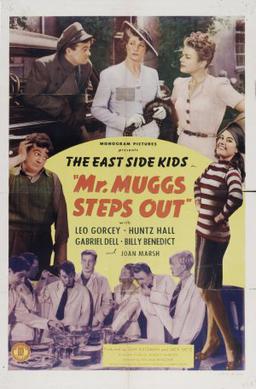
Mr. Muggs Steps Out is a 1943 American comedy film directed by William Beaudine and starring The East Side Kids.
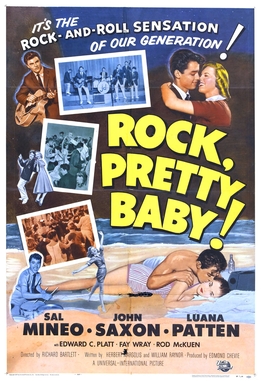
Rock, Pretty Baby is a 1956 American comedy musical film directed by Richard Bartlett and starring Sal Mineo, John Saxon and Luana Patten.
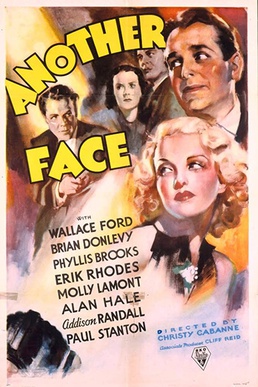
Another Face is a 1935 film directed by Christy Cabanne and starring Wallace Ford, Brian Donlevy and Phyllis Brooks. A wanted gangster has plastic surgery and becomes an actor.


















